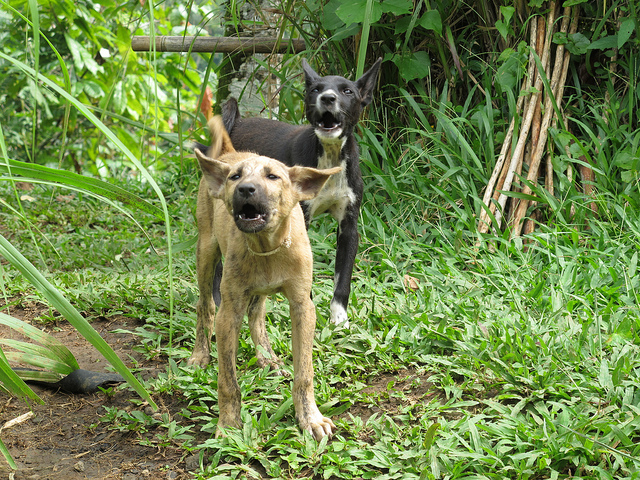A government investigation looking into whether dog satay is being fed to unsuspecting tourists in Bali has found nothing so far, says an official.
Bali’s provincial government assigned a team from the Animal Husbandry and Health Services to the case after a shocking report by the Australian Broadcasting Corporation was published last month, on June 19.
Despite the gruesome detailing of the ABC report looking into the island’s dark dog meat trade, the head of the Department of Animal Husbandry and Health Services, I Putu Sumantra, said on Sunday at an open public forum in Denpasar that his team has not uncovered any sale of dog meat satay in Bali’s tourist areas. Nevertheless, Sumantra says his team will deepen their investigation given the public distress over the trending topic.
“As soon as we have any information, we will immediately coordinate with village elders and continue to investigate places allegedly selling (dog meat), but to this day, we have never seen anyone offering dog satay to tourists,” Sumantra said.
An undercover reporter, identified only as “Luke” for ABC, dedicated months to studying and infiltrating the dog meat trade in Bali, posing as a filmmaker working on a documentary about local cuisine. While dog meat isn’t illegal in Indonesia, it is against the law to kill animals cruelly and serving poisoned meat is forbidden.
The report included footage of a dog satay vendor who would mislead tourists and tell them his meat was not from dog—though in actuality it was marked ‘RW,’ which Indonesia does denote dog meat.
“I began the investigation by pinpointing and getting to know the key players in Bali’s completely unregulated dog-meat industry. Eventually, they invited me to join them as their gangs stole, hunted, poisoned and killed dogs,” says Luke.
The issue is no small scale problem, as an estimated 70,000 dogs are sold as meat each year in Bali, according to the Bali Animal Welfare Association.
Tourism is Bali’s biggest industry and the government fears that not acting against cries to take action against dog meat from international onlookers could be bad for business. A petition started by Animals Australia urging Bali’s governor to ban dog meat on the island has already received over 160,000 signatures since it was launched immediately after the ABC report.
In addition to potentially ‘tarnishing’ Bali’s reputation with tourists, Sumantra says there are also public health concerns at hand.
While some dogs are shot and bludgeoned to death, others are poisoned, killed with cyanide, according to the ABC report.
“If it is true that the meat sold comes from dogs poisoned by cyanide, then that is very serious, that can result in death for those who consume (the poisoned meat),” Sumantra added.
However, Sumantra says without any concrete findings so far, he remains skeptical of the Australian report’s findings and apparently about the motives of the “information spread.”
“We need to know who spread the information and why.”




